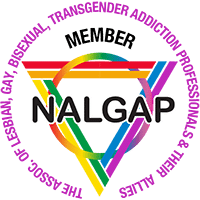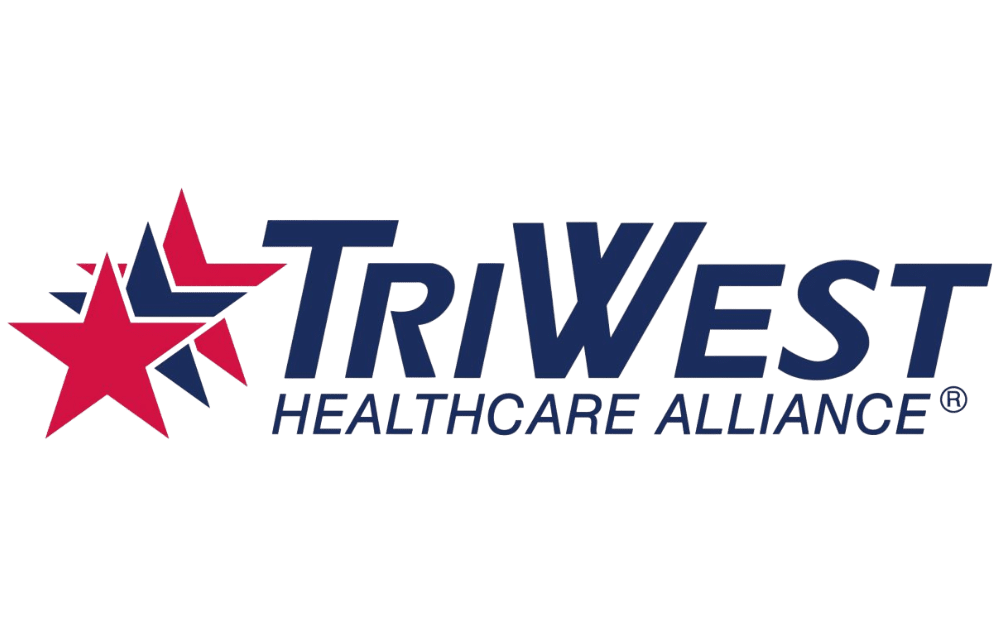12 Step Program
Origins of the 12-Step Program
The 12-step program originated from the experience and insights of two men, Bill Wilson and Dr. Bob Smith, who in 1935 founded Alcoholics Anonymous (AA). At its core, the 12-step program was developed as a method for individuals struggling with alcoholism to achieve sobriety. What started as a small group meeting in Akron, Ohio, has grown into a world-renowned model for overcoming addiction that has been adapted for a variety of dependencies beyond alcohol.
This model focuses on spiritual transformation and self-awareness, guiding participants through a process that encourages personal growth and sustained recovery. The simplicity and spirituality embedded in the 12-step approach provided a framework that has proven adaptable to various other circumstances, becoming an integral part of recovery programs worldwide.
Core Principles of the 12-Step Program
Admission and Acceptance
At the heart of the 12-step program is the admission of powerlessness over the addiction and the recognition that life has become unmanageable. This is an essential first step that opens the door to recovery by embracing vulnerability and honesty.
Belief in a Higher Power
Another cornerstone is the belief in a power greater than oneself, which could be spiritual, religious, or secular in nature. This element provides hope and a supportive force for the recovery journey. Whether one’s higher power is God, the universe, or the collective wisdom of the group, the act of surrender fosters personal change.
Relevance of the 12 Steps Today
In our rapidly changing world, the 12-step program remains as relevant today as it was decades ago, continuing to serve as a guide for countless individuals seeking recovery. The program’s adaptability to various addictions, including drugs, gambling, and eating disorders, highlights its timeless applicability. By addressing the underlying behavioral patterns and providing a structured approach, many people find a lasting solution to previously unmanageable problems.
Modern-day addiction treatment centers, like Mile High Recovery Center, often incorporate the 12-step methodology alongside other therapies to enhance recovery outcomes. The program’s adaptability allows it to be customized to fit the unique needs of patients receiving treatment for a range of substance use disorders.
Integration of Professional Therapies
While the 12-step program offers a solid foundation for recovery, its effectiveness can be heightened when combined with evidence-based therapies such as Cognitive Behavioral Therapy (CBT) and Dialectical Behavior Therapy (DBT). Facilities like Mile High Recovery Center integrate these clinical approaches, supporting clients as they confront and reshape detrimental patterns of thought and behavior. The convergence of professional therapies and the 12-step framework creates a robust and effective treatment model.
The Role of Community and Support
The communal aspect of the 12-step program provides a sanctuary where individuals can share experiences without judgment. This support network is indispensable, encouraging accountability and offering a sense of belonging. Participants often find inspiration and motivation through the shared narratives of others who are at various stages of recovery.
An active alumni community, such as the one at Mile High Recovery Center, further enriches this process by fostering long-term relationships that reinforce sobriety and personal growth. Regular alumni meetings and events sustain these connections, creating enduring bonds and reinforcing the principles learned during treatment.
Personal Experiences of the 12-Step Program
Experiencing the 12-step program firsthand often leads to profound personal insights and revelations. For many, the journey is transformative, offering not only sobriety but also newfound clarity and purpose. Graduates of the program frequently report a sense of empowerment and a deepened understanding of their strengths and capabilities. These personal stories highlight the program’s capacity to change lives, demonstrating its effectiveness across diverse backgrounds and histories.
The individualized journey through the steps fosters a sense of achievement and validates the hard work required to sustain recovery. Hearing these stories often encourages others to commence their own path toward healing.
With each milestone, participants are reminded that recovery is an ongoing process, continually evolving along with their personal growth and life circumstances.
Customizing the 12 Steps for Different Needs
Though the traditional 12-step program serves as a comprehensive guide for many, it can be customized to align with individual beliefs and needs. Some participants may choose to focus more on the psychological elements, while others draw heavily from the spiritual aspects. Adaptations reflect the program’s inherent flexibility, enabling it to support diverse demographic groups, including the LGBTQ community, adolescents, and those in military service.
This personalization helps ensure that participants remain engaged and committed to their recovery journey. At Mile High Recovery Center, the treatment team works closely with clients to tailor their approach, promoting a supportive environment where individual differences are respected and valued.
Challenges and Solutions in Implementing the 12 Steps
While the 12-step program has been pivotal for many, it is not without challenges. Some participants struggle with the concept of surrendering to a higher power, an obstacle that can be addressed by redefining this concept to fit personal beliefs. Others may find it difficult to commit to the rigorous honesty required, yet support from peers and professionals helps mitigate these hurdles.
Solutions often involve adapting the language and focus of the steps to match individual comfort levels, ensuring the program remains accessible and effective. Facilities like Mile High Recovery Center offer additional resources and therapeutic modalities to complement the traditional model, addressing unique challenges as they arise.
The Future of 12-Step Programs
The future of the 12-step program is promising, with ongoing adaptations ensuring its relevance in an ever-evolving society. As new types of addiction emerge and societal perceptions change, the program’s ability to evolve and incorporate new insights ensures its continued efficacy.
Treatment centers continue to explore innovative integrations, such as digital platforms that widen access to group meetings and resources. The inclusion of experiential therapies, like art and equine-assisted activities, further enhances the recovery experience, promoting holistic healing.
As the understanding of addiction deepens, the 12-step program’s core principles will likely remain central to transformative change, offering a beacon of hope for those navigating the challenging path of recovery.
What are the origins of the 12-step program and how can understanding this history help in recovery?
The 12-step program has its roots in the experiences of Bill Wilson and Dr. Bob Smith, who started Alcoholics Anonymous in 1935. Their personal struggles with alcoholism were the catalyst for developing a support framework that emphasized spiritual transformation, community support, and personal accountability. Understanding this history can be empowering for individuals in recovery as it highlights the program’s deep roots in human experience and resilience. By seeing how the founders navigated their own journeys, participants today might find encouragement and relate personal challenges to a broader narrative. So, when someone feels isolated in their struggle, recognizing that they’re part of a long-standing tradition of recovery can be profoundly comforting.
What are the core principles of the 12-step program and how do they facilitate recovery?
The core principles of the 12-step program include admission and acceptance, belief in a higher power, and personal reflection. Admission of powerlessness over addiction allows individuals to embrace vulnerability, which is a vital step toward healing. Belief in a higher power, whether spiritual or secular, provides a source of hope and strength outside of oneself. These principles encourage deep self-examination, fostering an environment where personal growth is not just possible but encouraged. In practice, these principles can be transformative, helping someone realign their life priorities and find a sense of purpose and belonging.
How relevant are the 12 steps in today’s world, considering modern challenges and societal changes?
The 12 steps remain highly relevant today due to their adaptability and universal applicability. In combating addictions beyond alcohol, such as drugs, gambling, and even eating disorders, the steps provide a structured approach that digs into the root behavioral patterns that often underpin these issues. Modern addiction treatment centers, like Mile High Recovery Center, integrate the 12-step method with other evidence-based therapies, enhancing its effectiveness. This adaptability is key, as it allows the principles to be tailored to fit today’s varied challenges while maintaining their foundational wisdom.
How does the integration of professional therapies enhance the traditional 12-step program?
Integrating professional therapies like Cognitive Behavioral Therapy (CBT) and Dialectical Behavior Therapy (DBT) with the 12-step program creates a comprehensive and balanced approach to recovery. At Mile High Recovery Center, these therapies help clients challenge and alter detrimental thought patterns and behaviors while the 12-step framework provides spiritual and communal support. This dual approach not only addresses the immediate challenges of addiction but also prepares clients for sustained recovery by equipping them with the tools to manage life’s complexities. It’s like having a safety net during tightrope walking; you have both the skills and the backup to succeed.
Why is community support crucial in the 12-step program?
Community support is the backbone of the 12-step program because it provides a non-judgmental space for sharing experiences, offering encouragement, and fostering accountability. This support network acts as a sanctuary where people can express themselves freely and be inspired by others’ recovery journeys. At Mile High Recovery Center, alumni networks further strengthen these bonds through regular meetings and events. Such communities nurture long-term recovery, as participants gain insights from shared narratives and develop lasting relationships that act as pillars of strength and motivation.
How do personal experiences shape one’s journey through the 12 steps, and how are these experiences shared within the community?
Personal experiences deeply influence an individual’s journey through the 12 steps, providing both challenges and enlightenment. Many who engage with the program find that they not only achieve sobriety but also gain clarity and a renewed sense of purpose. These experiences offer valuable insights into personal strengths and vulnerabilities. Sharing these stories within the community can inspire others to embark on their journeys, demonstrating the program’s potential to change lives. Each personal milestone, celebrated within the group, reinforces the idea that recovery is ongoing and evolves alongside personal growth. Often, hearing a story that resonates deeply can be the catalyst someone else needs to take the first step in their own recovery.
How can the 12 steps be customized for individuals from diverse backgrounds and needs?
The 12 steps are inherently flexible, allowing for customization to meet individual beliefs and needs. For instance, someone from the LGBTQ community might adapt the language or focus of the steps to better align with their experiences and challenges. At Mile High Recovery Center, the treatment team works closely with clients to tailor the program to fit their specific circumstances, such as focusing on psychological aspects over spiritual ones if that suits their preference. This personalization ensures that the program remains engaging and effective, fostering a supportive environment that respects and values individual differences.
What are some common challenges in implementing the 12 steps, and how can they be overcome?
Implementing the 12 steps can present challenges, such as the concept of surrendering to a higher power, which some individuals may struggle with. This can be addressed by redefining what ‘higher power’ means on a personal level–whether it’s the collective wisdom of the group or another force that resonates with them. Another challenge is the requirement for rigorous honesty, which some individuals might find daunting. Support from peers and professionals can help mitigate this, offering guidance and encouragement. Facilities like Mile High Recovery Center offer additional resources and therapeutic modalities to complement the traditional model, adapting it to address unique challenges as they arise. Approaching these challenges with an open mind can lead to new insights and breakthroughs in one’s recovery journey.
What does the future hold for 12-step programs in the context of evolving societal needs and addiction landscapes?
The future of 12-step programs is promising as they continue to adapt to meet evolving societal needs and address emerging types of addiction. Treatment centers are integrating digital platforms to broaden access to resources and group meetings, making the program more accessible than ever. Additionally, incorporating experiential therapies like art and equine-assisted activities enhances the holistic aspect of recovery. These innovations ensure that the core principles of the program remain effective and relevant. As our understanding of addiction deepens, these programs are poised to remain a cornerstone of recovery, offering hope and transformative change.
Resources
- Alcoholics Anonymous – Homepage for Alcoholics Anonymous, the organization that originated the 12-step program.
- Substance Abuse and Mental Health Services Administration (SAMHSA) – SAMHSA provides information and resources related to substance abuse and mental health disorders.
- American Psychiatric Association – Homepage for the American Psychiatric Association, offering information on psychiatric disorders and treatments.
- Narcotics Anonymous – Narcotics Anonymous is a global, community-based organization providing support for individuals recovering from drug addiction.
- Academy of Nutrition and Dietetics – The Academy of Nutrition and Dietetics offers resources related to nutrition and healthy eating habits.
















